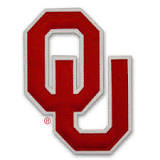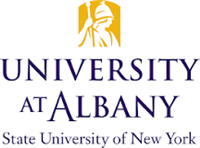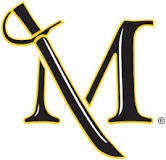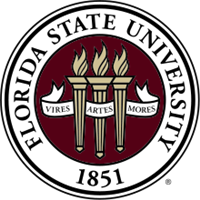What do they do?
Investigate atmospheric phenomena and interpret meteorological data, gathered by surface and air stations, satellites, and radar to prepare reports and forecasts for public and other uses. Includes weather analysts and forecasters whose functions require the detailed knowledge of meteorology.
Also known as:
Broadcast Meteorologist, Forecaster, Forensic Meteorologist, General Forecaster, Hydrometeorological Technician, Meteorologist, Research Meteorologist, Space Weather Forecaster, Warning Coordination Meteorologist, Weather Forecaster
-
8.4%
Change
Select a state to see its job growth rate ranking1,000Job Openings
Select a state to see its net job growth ranking
-
University of Oklahoma-Norman Campus
Norman, OK
-
SUNY at Albany
Albany, NY
-
Millersville University of Pennsylvania
Millersville, PA
-
University of Michigan-Ann Arbor
Ann Arbor, MI
-
Florida State University
Tallahassee, FL
Looking for colleges that offer a specific major? Use the College Match Tool to find your best-matched schools and discover your estimated Net Price!
- Doctorate or Professional Degree (11%)
- Master's degree (24%)
- Bachelor's degree (56%)
- Associate's degree (3%)
- Some college, no degree (5%)
- High school diploma equivalent (<1%)
- Less than high school diploma (<1%)
Most Popular Majors that prepare Atmospheric and Space Scientists
-
#1
-
Degrees Granted
780
-
Female Students
309
-
Male Students
471
-
Median Starting Salary
$43,600
-
-
#2
-
Degrees Granted
262
-
Female Students
103
-
Male Students
159
-
Median Starting Salary
$43,600
-
-
#3
-
Degrees Granted
43
-
Female Students
15
-
Male Students
28
-
Median Starting Salary
$43,600
-
-
#4
-
Degrees Granted
7
-
Female Students
2
-
Male Students
5
-
Median Starting Salary
$43,600
-
-
#5
-
Degrees Granted
2
-
Female Students
1
-
Male Students
1
-
Median Starting Salary
$43,600
-
People in this career often have these skills:
- Reading Comprehension - Understanding written sentences and paragraphs in work-related documents.
- Active Listening - Giving full attention to what other people are saying, taking time to understand the points being made, asking questions as appropriate, and not interrupting at inappropriate times.
- Writing - Communicating effectively in writing as appropriate for the needs of the audience.
- Speaking - Talking to others to convey information effectively.
- Science - Using scientific rules and methods to solve problems.
- Critical Thinking - Using logic and reasoning to identify the strengths and weaknesses of alternative solutions, conclusions, or approaches to problems.
- Active Learning - Understanding the implications of new information for both current and future problem-solving and decision-making.
- Complex Problem Solving - Identifying complex problems and reviewing related information to develop and evaluate options and implement solutions.
- Judgment and Decision Making - Considering the relative costs and benefits of potential actions to choose the most appropriate one.
- Systems Analysis - Determining how a system should work and how changes in conditions, operations, and the environment will affect outcomes.
People in this career often know a lot about:
- Physics - Knowledge and prediction of physical principles, laws, their interrelationships, and applications to understanding fluid, material, and atmospheric dynamics, and mechanical, electrical, atomic and sub-atomic structures and processes.
- English Language - Knowledge of the structure and content of the English language including the meaning and spelling of words, rules of composition, and grammar.
- Mathematics - Knowledge of arithmetic, algebra, geometry, calculus, statistics, and their applications.
- Geography - Knowledge of principles and methods for describing the features of land, sea, and air masses, including their physical characteristics, locations, interrelationships, and distribution of plant, animal, and human life.
- Computers and Electronics - Knowledge of circuit boards, processors, chips, electronic equipment, and computer hardware and software, including applications and programming.
- Communications and Media - Knowledge of media production, communication, and dissemination techniques and methods. This includes alternative ways to inform and entertain via written, oral, and visual media.
People in this career often have talent in:
- Oral Comprehension - The ability to listen to and understand information and ideas presented through spoken words and sentences.
- Written Comprehension - The ability to read and understand information and ideas presented in writing.
- Oral Expression - The ability to communicate information and ideas in speaking so others will understand.
- Written Expression - The ability to communicate information and ideas in writing so others will understand.
- Speech Clarity - The ability to speak clearly so others can understand you.
- Problem Sensitivity - The ability to tell when something is wrong or is likely to go wrong. It does not involve solving the problem, only recognizing that there is a problem.
- Deductive Reasoning - The ability to apply general rules to specific problems to produce answers that make sense.
- Inductive Reasoning - The ability to combine pieces of information to form general rules or conclusions (includes finding a relationship among seemingly unrelated events).
- Near Vision - The ability to see details at close range (within a few feet of the observer).
- Speech Recognition - The ability to identify and understand the speech of another person.
- Information Ordering - The ability to arrange things or actions in a certain order or pattern according to a specific rule or set of rules (e.g., patterns of numbers, letters, words, pictures, mathematical operations).
- Category Flexibility - The ability to generate or use different sets of rules for combining or grouping things in different ways.
- Flexibility of Closure - The ability to identify or detect a known pattern (a figure, object, word, or sound) that is hidden in other distracting material.
People in this career often do these activities:
- Provide technical information or assistance to public.
- Collect environmental data or samples.
- Measure environmental characteristics.
- Develop theories or models of physical phenomena.
- Interpret research or operational data.
- Prepare scientific or technical reports or presentations.
- Direct technical activities or operations.
- Conduct climatological research.
- Develop mathematical models of environmental conditions.
- Collaborate on research activities with scientists or technical specialists.
- Research environmental impact of industrial or development activities.
- Prepare research or technical reports on environmental issues.
- Communicate with the public on environmental issues.
- Provide educational information to the public.
- Test computer system operations to ensure proper functioning.
- Analyze design requirements for computer or electronics systems.
- Write computer programming code.
- Develop training materials.
- Present information to the public.
- Teach classes in area of specialization.
- Apply knowledge or research findings to address environmental problems.
- Develop environmental research methods.
- Instruct college students in physical or life sciences.
- Create images or other visual displays.
This page includes data from:

 Occupation statistics: USDOL U.S. Bureau of Labor Statistics Occupational Employment Statistics
Occupation statistics: USDOL U.S. Bureau of Labor Statistics Occupational Employment Statistics









